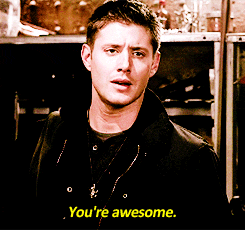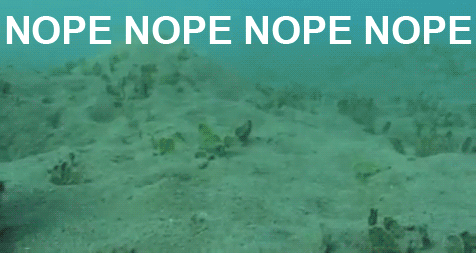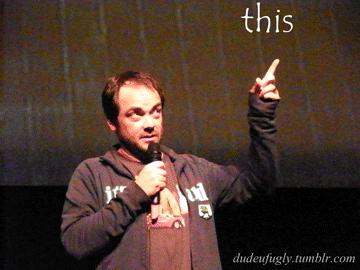Why I’m not the person to ask about Self-Publishing
Someone asked me today how did I become a bestselling author from self-publishing and it’s a question I get asked a lot from authors who are traditionally pub’d thinking about going the self-published route and those who are now starting out.
I would love to answer and say, “Because I’m da boss.”

But that’s so not true.
I am the last person anyone should ask about how to be a successful self-published author. That might sound like a strange statement when I had a self-published book hit number 1 on New York Times and all that jazz, but it’s actually the truth.
Why? Because my success (whatever “success” really means, b/c it’s so subjective) story is not one tied only to self-publishing. I am not an “indie” success. Not really. Not like most “indie” authors who started off self-publishing books and who did ALL THAT WORK, from ground zero of book one and so on, all by them themselves or with their team of people. And by me saying I’m not an “indie” success is not me knocking indie authors. It’s me saying they deserve WAAAAAAY more credit than I do. Like they deserve a round of mother-freakin’ applause.
They deserve a Dean Winchester gif saying:

Because they’d done things that only I can dream of.
My venture into self-publishing was not the typical dive into self-publishing, which is why I’m the worse person to get that advice from. Here is why.
Before Wait for You was self-published and did it’s thing (which is my only book I’ve self-published), I’d already had 12 books on the market. Those 12 books were with small presses, which means on those 12 books, I had the support of a publisher, editorial team and marketing. Out of those 12 books, at least 6 or so of them could be found in bookstores. I’d secured two “traditional contracts” before Wait for You was self-published and did it’s thing, one with Disney/Hyperion and one with Harlequin Teen. And I’d debuted on the USA Today bestseller’s list 3 times (I think??) before I self-published Wait for You.
What does this mean?
It’s means I came into self-publishing with a platform– an audience, relationships with bloggers and reviewers that were built and cultivated over the course of 12 books in different genres. And that platform wasn’t just built by me–it was framed out and added on by my agent, my publishers, editors, and marketing teams I’d worked with on 12 books leading up to Wait for You. I’d had 12 books under my belt to get to know the market and I worked with many marketing teams to create my own strategy. I also had 12 books published and was able to skirt the stupid stigma that some people still associate with self-publishing. Some people who wouldn’t review a self-published book picked up Wait for You for review because they didn’t realize it was self-published.
And by the way, that stigma is stupid and makes me do this when people talk smack about self-published authors:

Because no matter what, I am PROUD to be a part of the self-publishing community and the fact that they are proving there are needs where small and big publishing houses were lacking, and these authors are typically business savvy, ballsy, and bad-ass. They are the ninja of authors.
Anyway, having all those things going into self-publishing is not normal for self-publishing. It’s getting more normal. A lot of traditional authors are going that route, but my case and their cases, are not typical self-publishing cases.
I should probably never be toted as that percentage of success stories, because the real success stories are Colleen Hoover, Jamie McGuire, Tamara Webber (did I spell her name wrong? Probably), Abbi Glines, HM Ward, Katy Evans, Molly McAdams, Cora Carmack, Jay Crownover, Amanda Hocking, Bella Andre–oh my Goodness, I could keep going. These are the people who probably could give the best advice and are truly sensations when it comes to how they built their brands from the ground up.
Of course, I had a HUGE hand in the building of my brand, because I take responsibility for myself and my career, but I also had a lot of help. I had a lot of pushes and I had a lot of people that helped me a long the way. I jumped into self-publishing with a parachute AND a safety net. So if I turned out to be one giant fail whale, I could be like the nope octopus and pretend that never happened.

There was nothing special, ballsy or groundbreaking about that or gives me any right to dispense advice.

So when people ask me how did I become a “successful self-published” author, my answer is probably not what people are looking to hear. It’s kind of weird and it goes like this:
“Well, I signed with two small presses, did good with them, got an agent, sold to the big guys, signed a few more with the small presses, hit bestsellers list, and then I self-pub’d a book.”
And let’s be honest, that just ain’t real helpful.
But you know what I can say that is helpful?
Never give up.
Cheesy, right? Come on, that is cheesy-mc-cheesers, but it’s true. Want to know why?
Ask me why I self-published Wait for You instead of how did I make it successful.

Answer. Yo.
I self-published Wait for You, because after the small presses, the agent, the books in stores, and the bestsellers lists, I got rejected on the manuscript. Turned down. Thank you, please come again.
But I didn’t give up.
Instead of shelving the book, I self-published that beeotch and within a month and a few days of being rejected, Wait for You hit the NY Times list and…. well, here we are. *GRINS*

I feel that everything I’d done, my agent and what my publishers had done were all leading up to what happened with Wait for You. So in a way, it was a group effort and atypical. I don’t know what it takes to be a successful self-published author because my experience was based on working with publishers and my agent, interacting with readers and reviewers all before I took the dive.
I’d love to find out though and to self-pub again, but I also know I’d probably wouldn’t be able to recreate what happened with Wait for You, because it’s kind of like the Big Mac sauce. I think I know there’s thousand islands dressing in there, but I ain’t sure. It’s the same with making it work–I think it was because I had a platform and a strategy, but I can never be sure. Not a hundred percent.
But there are others out there who can and who do it book after book. They are the ones who deserve to give advice and who you should be listening to. Not me. But I could probably give advice on how to do marketing the best you can and how to use Supernatural gifs. You know, real useful stuff.
And in closing, a Theo James gif…




